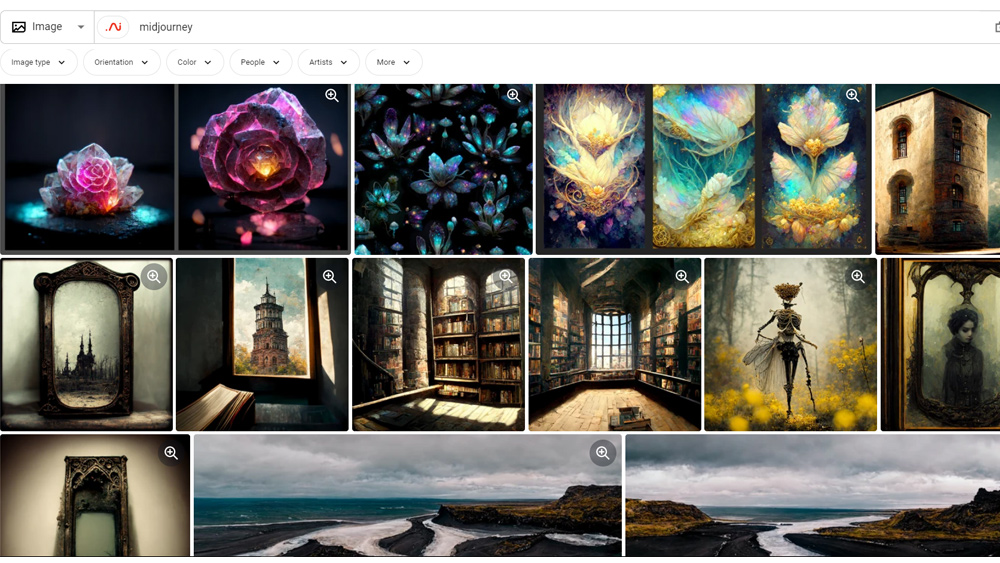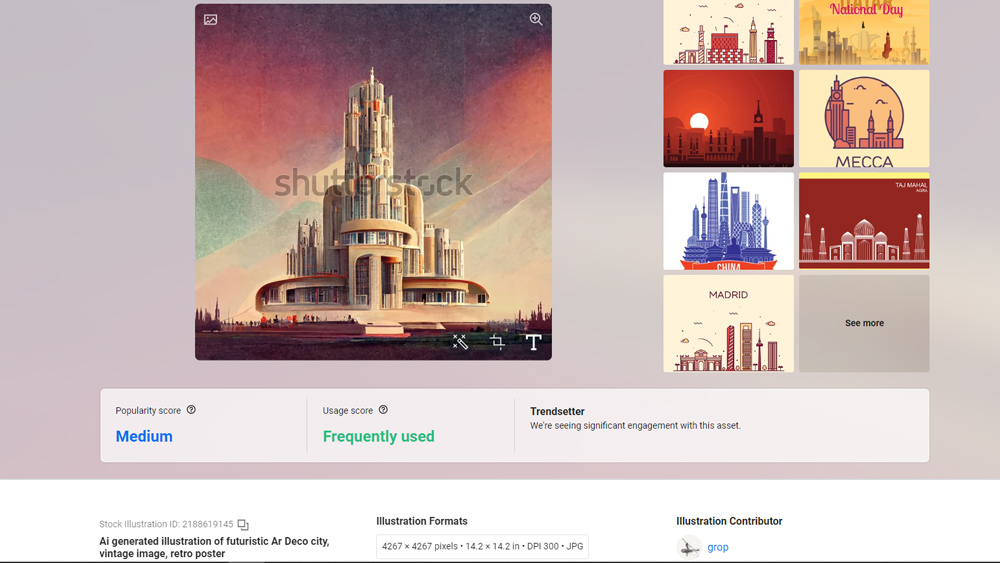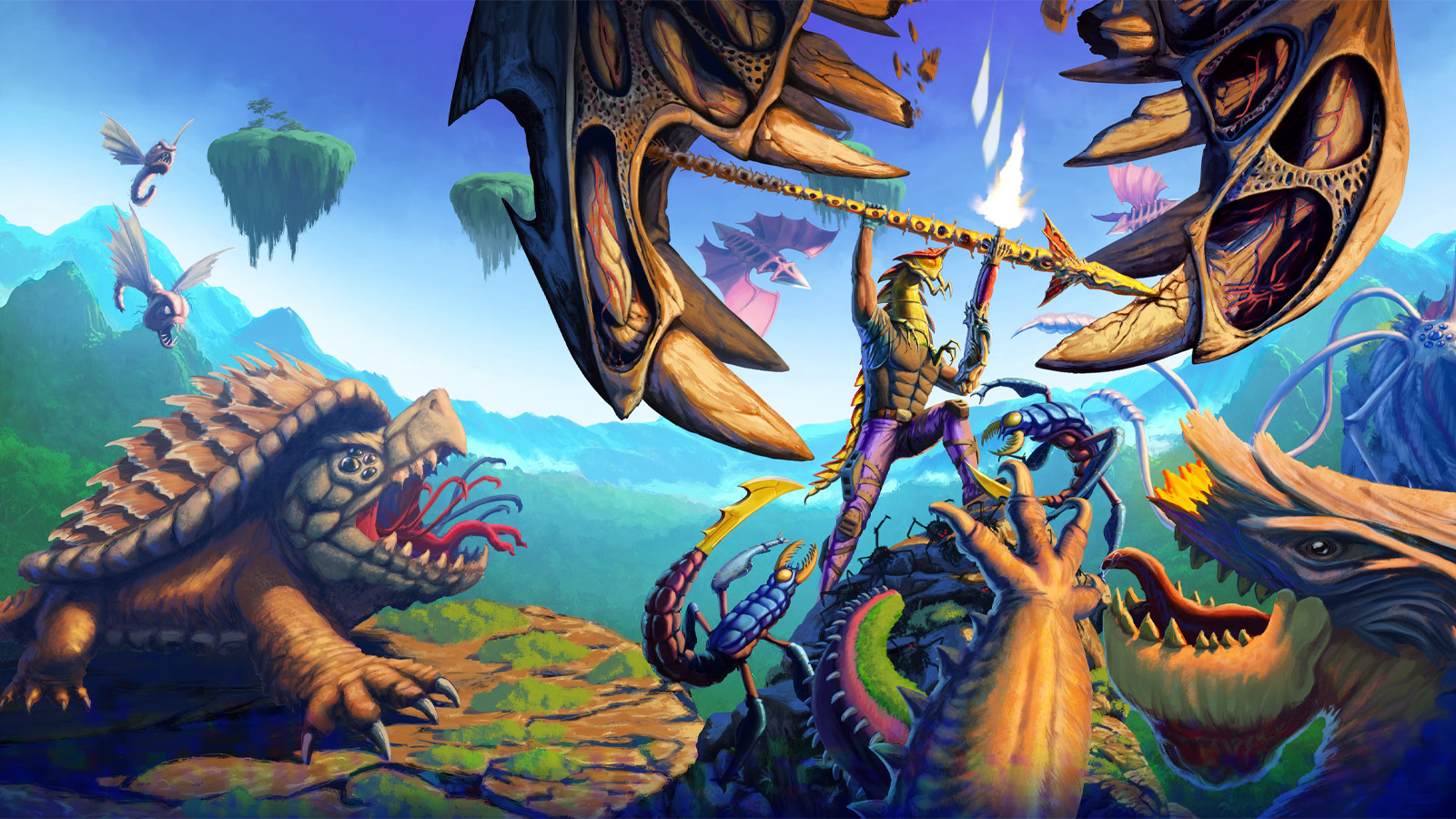Daily design news, reviews, how-tos and more, as picked by the editors.
You are now subscribed
Your newsletter sign-up was successful
Want to add more newsletters?

Five times a week
CreativeBloq
Your daily dose of creative inspiration: unmissable art, design and tech news, reviews, expert commentary and buying advice.

Once a week
By Design
The design newsletter from Creative Bloq, bringing you the latest news and inspiration from the worlds of graphic design, branding, typography and more.

Once a week
State of the Art
Our digital art newsletter is your go-to source for the latest news, trends, and inspiration from the worlds of art, illustration, 3D modelling, game design, animation, and beyond.

Seasonal (around events)
Brand Impact Awards
Make an impression. Sign up to learn more about this prestigious award scheme, which celebrates the best of branding.
AI-generated art has been causing astonishment and controversy in equal measure lately thanks the incredible output of the latest generation of tools. We've seen artists up in arms after an AI-generated piece won a fine art competition, while creatives in many areas are concerned about their jobs.
However, one other big concern about the commercial use of AI-generated images is that the question of copyright has yet to be resolved. And that's causing enough doubts for Getty Images, the company behind one of the word's biggest libraries of stock imagery, to ban AI-generated images from its site (if you're still not sure about how AI image generators work, see our piece on how to use DALL-E 2).
Well done GettyImages. Hopefully other places take a similar stance with this. This is certainly the way forward dealing with this. pic.twitter.com/70duZ8W6atSeptember 21, 2022
Text-to-image AI art generators create imagery from text prompts after being trained on a vast database of images and captions scraped from the internet to produce something that, if the user is lucky, resembles the description typed in. Open AI, the creators of DALL-E 2, now grants users full rights to commercialise the images they create on the platform. But it's not clear where things stand for the people who own the original images that the AI was raised on, especially if the AI art generator churns out something that closely resembles their work.
That seems to be the concern of the stock photography giant Getty Images, which has now banned its contributors from uploading AI-generated pictures. The company says “there are open questions with respect to the copyright of outputs from these models and there are unaddressed rights issues with respect to the underlying imagery and metadata used to train these models." It notes that the ban does not affect the submission of 3D renders and other digital editing tools.
What's interesting is that AI art generators like DALL-E 2 use neural networks that are trained on photos and art scraped from online sites, and it seems that includes Getty judging by the number of Getty Images watermarks that seem crop up in images generated by DALL-E 2, suggesting that either images partly come from Getty or that DALL-E 2 believes certain types of images should have a Getty watermark. Some users have also tested using "stock photo" as a description and found that they get similar looking images to photographs that exist on Getty Images.
its_pretty_obvious_where_dalle2_gets_some_of from r/dalle2
Repeated banana on the pink background - stock photo"
Getty's decision might be a blow to some of the many people creating imagery using AI image generators, but it makes sense. After all, customers' confidence in a stock photography site depends on them knowing they'll have no legal issues with the images they license.
However, it's not yet clear whether other stock photography sites intend to follow suit. Shuttstock, one of Getty's main rivals, hasn't made a statement. It appeared to be deleting AI-generated images at one point, but there are currently several in its stock library. In the video below, the book cover photographer Vanessa Shuswap suggests that the site is allowing AI images again having previously deleted them.
Daily design news, reviews, how-tos and more, as picked by the editors.
It may be that the site doesn't yet have the means to accurately detect AI-generated images. Getty Images is reportedly relying on users to report offending content but it says it's working with the Coalition for Content Provenance and Authenticity to create a filter to automatically flag up suspect images. Daniela Braga of the White House Special Task Force for A.I. Policy has told Forbes he believes legislation is required. “If these models have been trained on the styles of living artists without licensing that work, there are copyright implications,” he said.


Most AI-generated images can't be uploaded straight to a stock photography site due to their resolution and glitches in the images. Photographers will usually use other software to upscale than and to correct oddities before posting them. For more on the tools being used, see the best AI art generators compared and the new DALL-E 2 outpainting tool. AI synths have a frivolous side too. Just check out this AI Pokémon generator.
Read more:

Joe is a regular freelance journalist and editor at Creative Bloq. He writes news, features and buying guides and keeps track of the best equipment and software for creatives, from video editing programs to monitors and accessories. A veteran news writer and photographer, he now works as a project manager at the London and Buenos Aires-based design, production and branding agency Hermana Creatives. There he manages a team of designers, photographers and video editors who specialise in producing visual content and design assets for the hospitality sector. He also dances Argentine tango.
